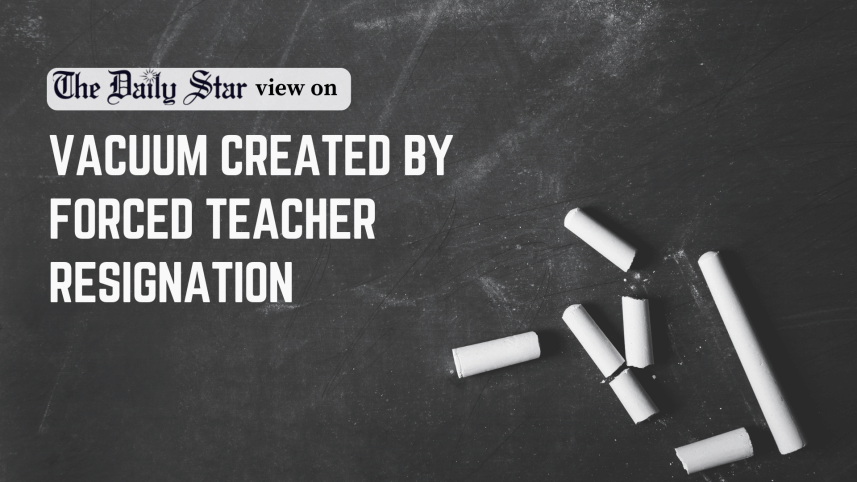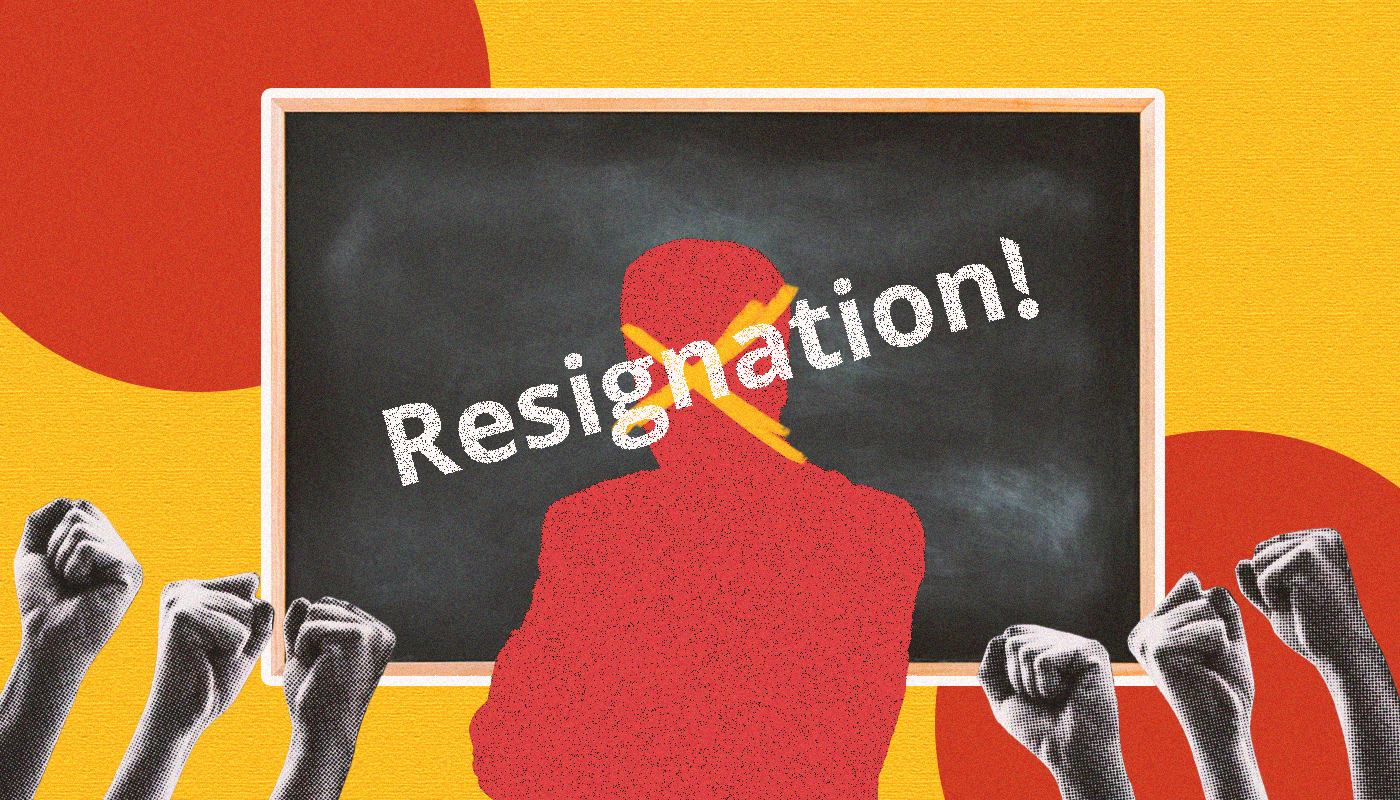Students need to practise restraint

We are concerned about the way mobs of students are forcing teachers of various public and private educational institutions, at both tertiary and pre-tertiary levels, to resign. This daily has been able to confirm at least 150 forced resignations across the country since August 5, but said that the actual number could be much higher. In many of these cases, students harassed and assaulted teachers. There have been instances where they even went to teachers' houses demanding resignations, putting their family at risk.
These incidents, along with the voluntary quitting of several hundred teachers following students' demands, have created an unprecedented situation. This is not only disrupting classroom activities but there is the possibility of a breakdown of academic discipline as well, as highlighted by the Education Adviser Prof Wahiduddin Mahmud last week. As a result, administrative activities including disbursement of salaries at educational institutions are getting disrupted. Moreover, this trend is deteriorating trust in teacher-student relations which forms the basis of our current institution-based educational system. While it is understandable that politicisation of teachers and our educational institutions has given rise to this breach of trust as well as frustration among students, the forced removal represents a remedy that may hurt more than it heals in the long run. It also cannot correct years of systemic wrongdoing.
Since August 5, over 40 out of 56 public universities in the country lost their vice-chancellors and other top administrative officials due to forced or voluntary resignation following students' demands. While the interim government has recently appointed a new VC for Dhaka University, other public universities are still without academic heads. Finding qualified persons to fill up these positions on such short notice has already proven to be a challenge. The forced removal of college-school principals and subject teachers, many of them from BCS education cadre, will only exacerbate the situation. Besides, there is the risk of these precedents to be intentionally used to cause disruptions. Unqualified persons may also end up in important positions as a result.
Under the circumstances, we appreciate the statements given by the education adviser and some coordinators of the anti-discrimination student movement calling on students to refrain from these disruptive behaviours, and assuring them that lawful actions would be taken against accused teachers if complaints by students are found to be valid. We must all understand that any desired reform in the education sector will not happen overnight. This sector has long suffered from teacher shortages, ineffective and politicised recruitment processes, etc. These issues as well as the pandemic, frequent natural disasters and political upheavals have pushed back the academic progress of our students.
Therefore, we cannot let impatience and pent-up frustration worsen the crisis by creating an artificial teacher vacuum or further compromising teachers' recruitment processes. We hope that students will practice restraint and allow the time and space needed for the implementation of their demands in an orderly fashion.
Follow The Daily Star Opinion on Facebook for the latest opinions, commentaries and analyses by experts and professionals. To contribute your article or letter to The Daily Star Opinion, see our guidelines for submission.
 For all latest news, follow The Daily Star's Google News channel.
For all latest news, follow The Daily Star's Google News channel. 

Comments